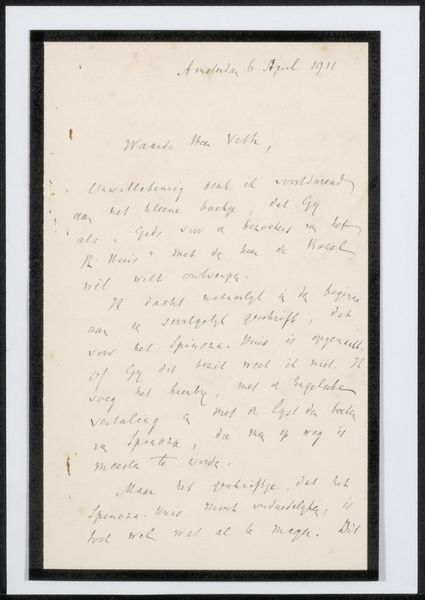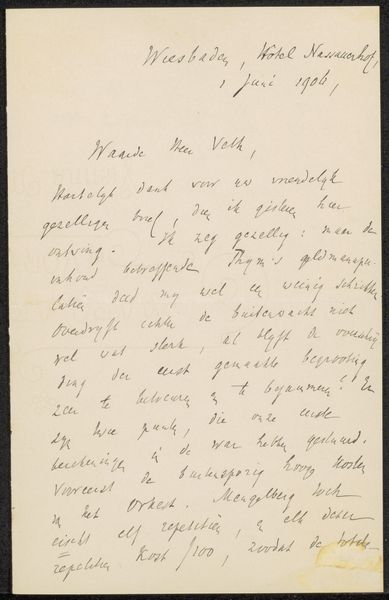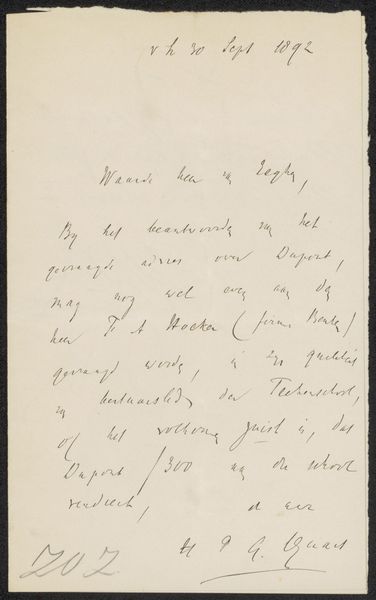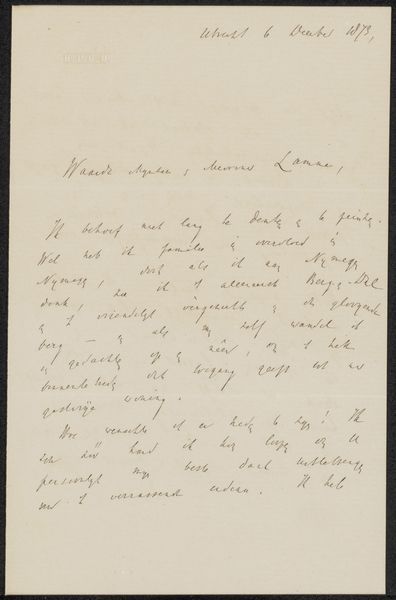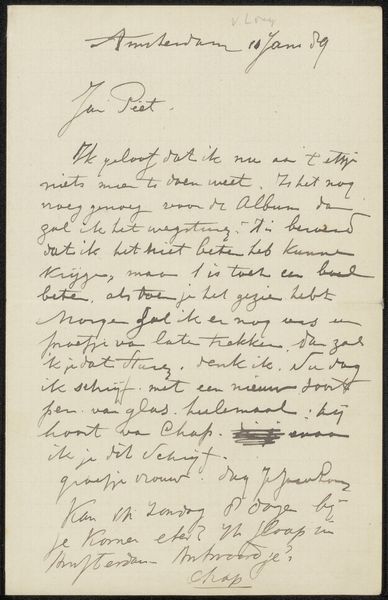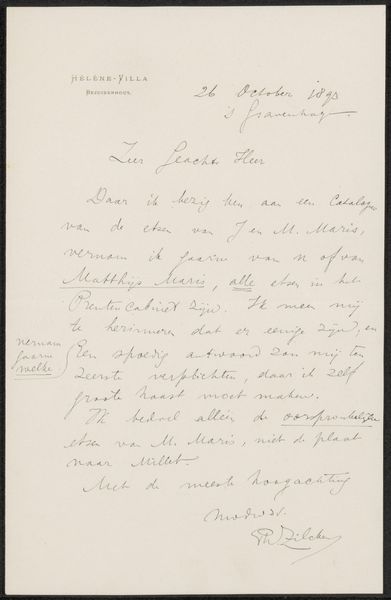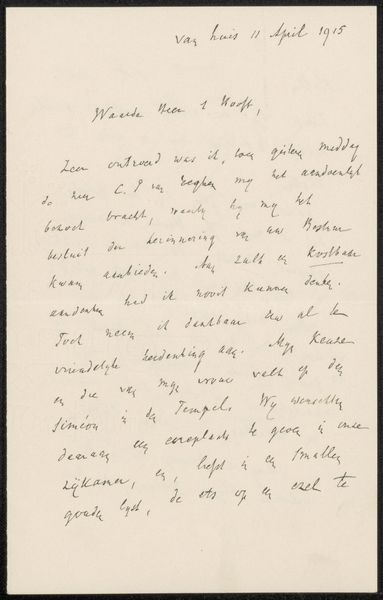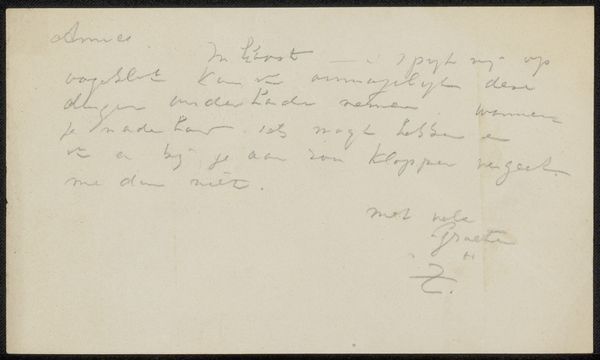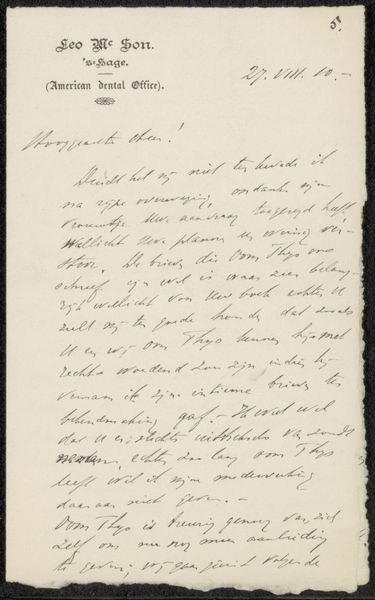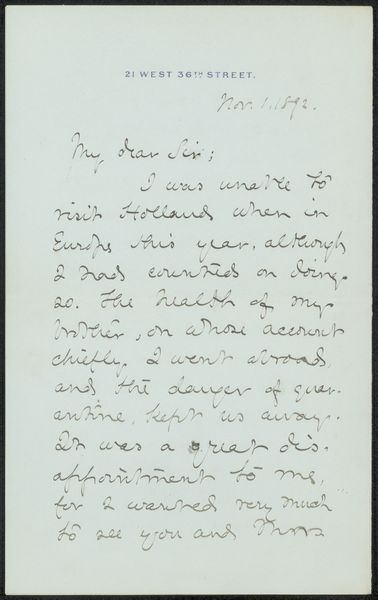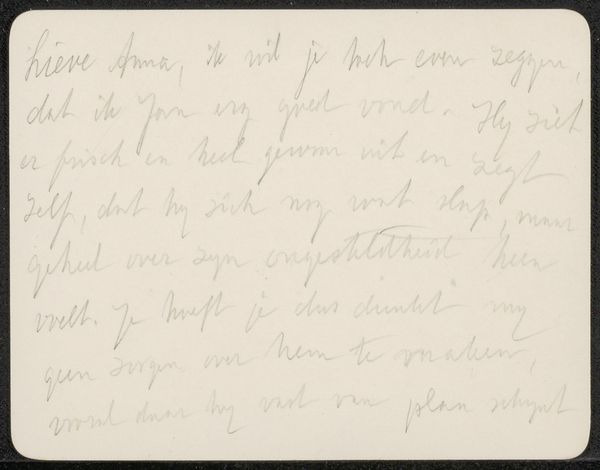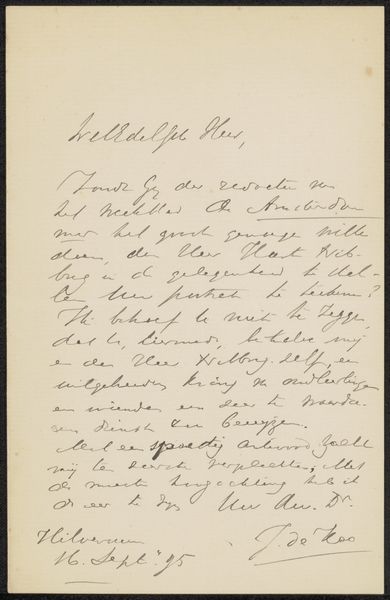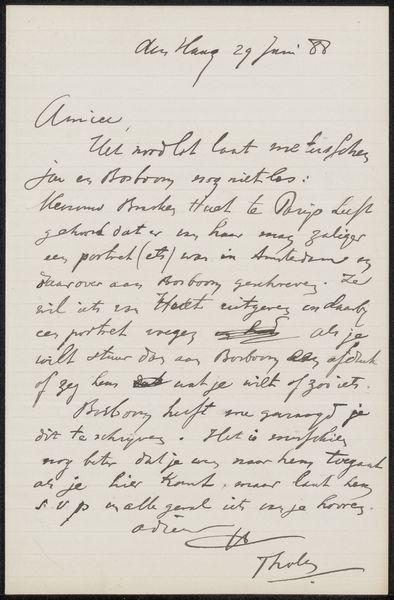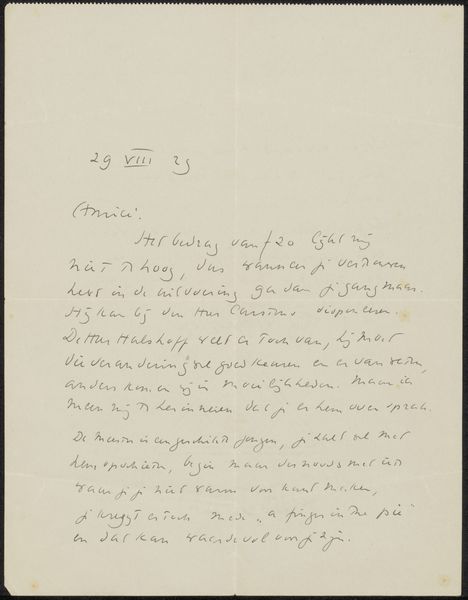
drawing, paper, ink, pen
#
portrait
#
script typeface
#
drawing
#
type repetition
#
script typography
#
hand-lettering
#
hand drawn type
#
feminine typography
#
hand lettering
#
paper
#
ink
#
hand-drawn typeface
#
thick font
#
pen
#
handwritten font
#
calligraphy
Copyright: Rijks Museum: Open Domain
Curator: The piece before us is titled "Brief aan August Allebé," or "Letter to August Allebé," and we believe it dates back to around 1889. It's a drawing done in ink on paper. The author is Hendrick Peter Godfried Quack. Editor: It's so delicate! And filled with text, almost entirely so. The script is fine, spidery... almost like thoughts spilled right onto the page. What a great example of handwriting as both communication and art. Curator: Indeed. This piece really shows the intersection between written language, everyday life, and artistic expression. The materials themselves – ink and paper – highlight their historical role in correspondence, predating digital communication. The physical act of writing links directly to Quack's labor and time invested. Editor: Absolutely. And look how the letterform varies. It's not uniform, but has an inconsistent character suggesting the emotion of its creation, or a lack of focus perhaps? The handwriting reminds me that these are real human messages with context and emotion tied up in them, not mere digital renderings. I love seeing this contrast between the personal effort versus modern modes of impersonal production, which separates thought from object. Curator: Precisely! That is, there is material and conceptual labor. Letters in the late 19th century facilitated social networks and cultural exchange; to see penmanship used so freely indicates class and access, too. The paper isn’t just paper: it signifies the resources, education, and systems enabling someone to write and communicate so readily. It allows reflection upon how that ability became a norm – to the degree it did – across the global North. Editor: Right, the very idea of having the *leisure* to engage in correspondence itself! So very revealing in so few strokes of the pen. Thank you for revealing all this by examining an old letter!
Comments
No comments
Be the first to comment and join the conversation on the ultimate creative platform.
